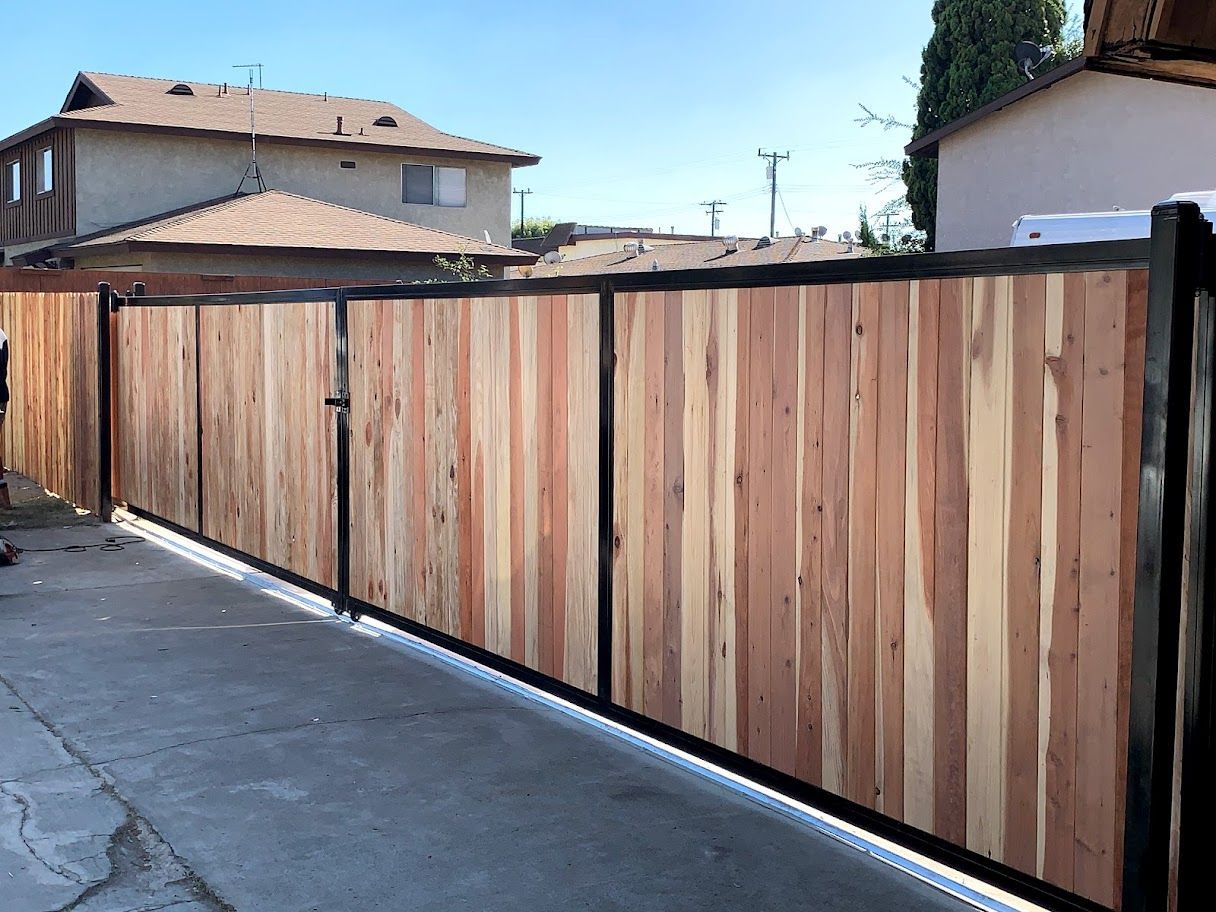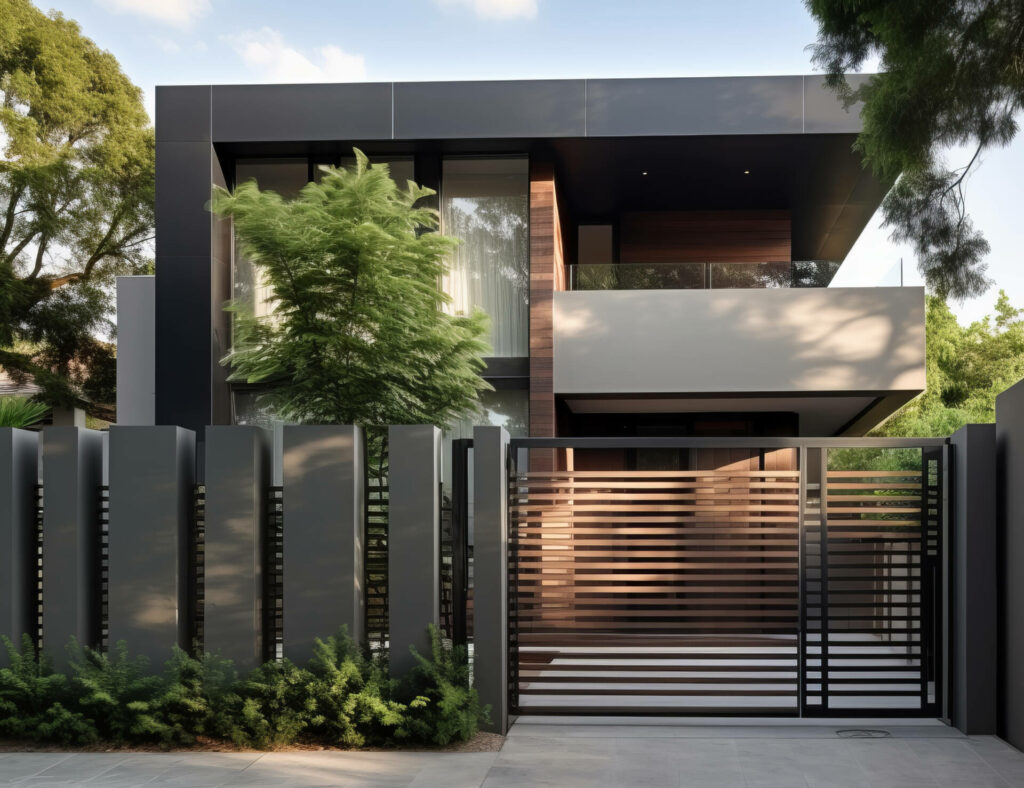All Categories
Featured
When choosing a fencing for your residential property, it's necessary to consider aspects like cost, resilience, upkeep, and visual allure. 3 of the most popular materials for industrial and domestic fencings are light weight aluminum, timber, and plastic.
Timber Secure Fencing. Pros:
![]()
Natural Visual: Timber fences are known for their classic, natural appearance. They can easily mix right into a lot of landscapes and enhance the beauty of your home or company. Whether you're intending for a rustic appearance or a much more sleek finish, wood can be personalized with paint, discolor, or sealer. Personalization: Wood is among the most flexible products, permitting for a broad variety of designs, such as picket fences, personal privacy fences, and ranch-style units. It's very easy to change the design to fit the specific requirements of your residential or commercial property. Cost effective: Normally, wood fencings come with a reduced initial price contrasted to plastic or light weight aluminum, making them an affordable choice for those on a budget. Cons:
Maintenance Demands: Timber fences call for normal upkeep to keep their beauty and capability. This includes staining or painting to shield versus rot, termites, and weather damages. Without correct care, timber can deteriorate over time. Shorter Life Expectancy: Contrasted to plastic or light weight aluminum, wood fences often tend to have a much shorter lifespan, especially in locations with severe weather. Severe problems, such as hefty rainfall, humidity, or snow, can create wood to weaken faster. Prone to Damage: Timber fencings are susceptible to damage from parasites, including termites, in addition to natural wear from weather. They may likewise warp or split if not effectively kept. Vinyl Secure fencing. Pros:
Low Upkeep: One of the primary benefits of plastic fences is that they require minimal upkeep. Unlike wood, vinyl doesn't require to be painted, secured, or tarnished. It's immune to fading, staining, and splitting, which conserves time and money on maintenance. Durability: Plastic is known for its capability to endure extreme weather without weakening. It's resistant to pests like termites, and its resistance to moisture and UV rays guarantees it stays looking great for lots of years. Lasting: A plastic fence can last as much as three decades or even more, making it an excellent long-term investment. Lots of suppliers supply warranties, better boosting its worth. Variety of Styles: Vinyl fences are readily available in numerous shades and styles, including those that mimic wood. You can select from privacy, picket, or ornamental designs, offering adaptability to match your home or company. Cons:
![]()
Higher Upfront Expense: Vinyl fencings often tend to have a greater initial price than timber. While the long-term financial savings on maintenance are substantial, the ahead of time investment may be a deterrent for some house owners. Limited Customization: Vinyl fencings can be found in basic designs, and while styles and colors are varied, you may not have as much flexibility for customization compared to wood. Breaking in Cold Climates: While vinyl is durable, in very chilly environments, it can become brittle and split upon effect, which can be problematic in locations with harsh winters. Light weight aluminum Fencing. Pros:
Low Maintenance: Aluminum fences are recognized for their low-maintenance needs. Unlike wood, light weight aluminum does not corrosion or rust, and it doesn't require to be repainted or sealed. This makes it an excellent selection for those that want a convenient alternative. Toughness and Stamina: Light weight aluminum is a durable material that stands up well to severe climate conditions. It's a superb selection for coastal locations where saltwater rust is a worry, as it's immune to rust. Aesthetic Charm: Aluminum fencings provide a clean, stylish look, commonly used for ornamental purposes. They're available in various styles, consisting of decorative layouts, and can add a premium feel to your property. Protection: Aluminum fencings are durable and deal fantastic protection, specifically when mounted with locks or gateways. Their strong building and construction gives a trusted barrier against unwanted entrance. Disadvantages:
![]()
Greater Initial Cost: Light weight aluminum fencings often tend to be extra pricey than timber, specifically if you select decorative designs. The in advance price might be excessive for some. Less Personal privacy: Aluminum fences normally have broader gaps between the slats, which implies they provide much less personal privacy than wood or vinyl fences. Aluminum may not be the best alternative if privacy is a concern. Nicking Problems: While aluminum is rust-resistant, it is susceptible to nicking or bending if struck with force. For instance, a lorry crash or hefty impact can cause long-term damage to the fence. Which Fencing Product is Right for You? Selecting the best fence depends on numerous aspects, including your budget plan, style preferences, maintenance capability, and the environment in which you live. If you want an all-natural appearance and are prepared for routine maintenance, timber may be the right choice.
Ultimately, each fencing product has its cons and pros, so it is very important to assess what matters most for your details requirements. Consider the environment, the level of personal privacy you call for, and just how much upkeep you want to devote to, and you'll discover the excellent fencing for your home.
Timber Secure Fencing. Pros:

Natural Visual: Timber fences are known for their classic, natural appearance. They can easily mix right into a lot of landscapes and enhance the beauty of your home or company. Whether you're intending for a rustic appearance or a much more sleek finish, wood can be personalized with paint, discolor, or sealer. Personalization: Wood is among the most flexible products, permitting for a broad variety of designs, such as picket fences, personal privacy fences, and ranch-style units. It's very easy to change the design to fit the specific requirements of your residential or commercial property. Cost effective: Normally, wood fencings come with a reduced initial price contrasted to plastic or light weight aluminum, making them an affordable choice for those on a budget. Cons:
Maintenance Demands: Timber fences call for normal upkeep to keep their beauty and capability. This includes staining or painting to shield versus rot, termites, and weather damages. Without correct care, timber can deteriorate over time. Shorter Life Expectancy: Contrasted to plastic or light weight aluminum, wood fences often tend to have a much shorter lifespan, especially in locations with severe weather. Severe problems, such as hefty rainfall, humidity, or snow, can create wood to weaken faster. Prone to Damage: Timber fencings are susceptible to damage from parasites, including termites, in addition to natural wear from weather. They may likewise warp or split if not effectively kept. Vinyl Secure fencing. Pros:
Low Upkeep: One of the primary benefits of plastic fences is that they require minimal upkeep. Unlike wood, vinyl doesn't require to be painted, secured, or tarnished. It's immune to fading, staining, and splitting, which conserves time and money on maintenance. Durability: Plastic is known for its capability to endure extreme weather without weakening. It's resistant to pests like termites, and its resistance to moisture and UV rays guarantees it stays looking great for lots of years. Lasting: A plastic fence can last as much as three decades or even more, making it an excellent long-term investment. Lots of suppliers supply warranties, better boosting its worth. Variety of Styles: Vinyl fences are readily available in numerous shades and styles, including those that mimic wood. You can select from privacy, picket, or ornamental designs, offering adaptability to match your home or company. Cons:

Higher Upfront Expense: Vinyl fencings often tend to have a greater initial price than timber. While the long-term financial savings on maintenance are substantial, the ahead of time investment may be a deterrent for some house owners. Limited Customization: Vinyl fencings can be found in basic designs, and while styles and colors are varied, you may not have as much flexibility for customization compared to wood. Breaking in Cold Climates: While vinyl is durable, in very chilly environments, it can become brittle and split upon effect, which can be problematic in locations with harsh winters. Light weight aluminum Fencing. Pros:
Low Maintenance: Aluminum fences are recognized for their low-maintenance needs. Unlike wood, light weight aluminum does not corrosion or rust, and it doesn't require to be repainted or sealed. This makes it an excellent selection for those that want a convenient alternative. Toughness and Stamina: Light weight aluminum is a durable material that stands up well to severe climate conditions. It's a superb selection for coastal locations where saltwater rust is a worry, as it's immune to rust. Aesthetic Charm: Aluminum fencings provide a clean, stylish look, commonly used for ornamental purposes. They're available in various styles, consisting of decorative layouts, and can add a premium feel to your property. Protection: Aluminum fencings are durable and deal fantastic protection, specifically when mounted with locks or gateways. Their strong building and construction gives a trusted barrier against unwanted entrance. Disadvantages:

Greater Initial Cost: Light weight aluminum fencings often tend to be extra pricey than timber, specifically if you select decorative designs. The in advance price might be excessive for some. Less Personal privacy: Aluminum fences normally have broader gaps between the slats, which implies they provide much less personal privacy than wood or vinyl fences. Aluminum may not be the best alternative if privacy is a concern. Nicking Problems: While aluminum is rust-resistant, it is susceptible to nicking or bending if struck with force. For instance, a lorry crash or hefty impact can cause long-term damage to the fence. Which Fencing Product is Right for You? Selecting the best fence depends on numerous aspects, including your budget plan, style preferences, maintenance capability, and the environment in which you live. If you want an all-natural appearance and are prepared for routine maintenance, timber may be the right choice.
Ultimately, each fencing product has its cons and pros, so it is very important to assess what matters most for your details requirements. Consider the environment, the level of personal privacy you call for, and just how much upkeep you want to devote to, and you'll discover the excellent fencing for your home.
Latest Posts
Discover the Premier Auto Repair Discounts in Montclare, Chicago
Published May 26, 25
1 min read
Smooth Light Weight Aluminum Rain Gutters: The Smart Selection for Your Home
Published May 23, 25
1 min read
Identifying When Your Car Needs Skilled Auto Repair at Montclare Auto Repair
Published May 23, 25
1 min read
More
Latest Posts
Discover the Premier Auto Repair Discounts in Montclare, Chicago
Published May 26, 25
1 min read
Smooth Light Weight Aluminum Rain Gutters: The Smart Selection for Your Home
Published May 23, 25
1 min read
Identifying When Your Car Needs Skilled Auto Repair at Montclare Auto Repair
Published May 23, 25
1 min read